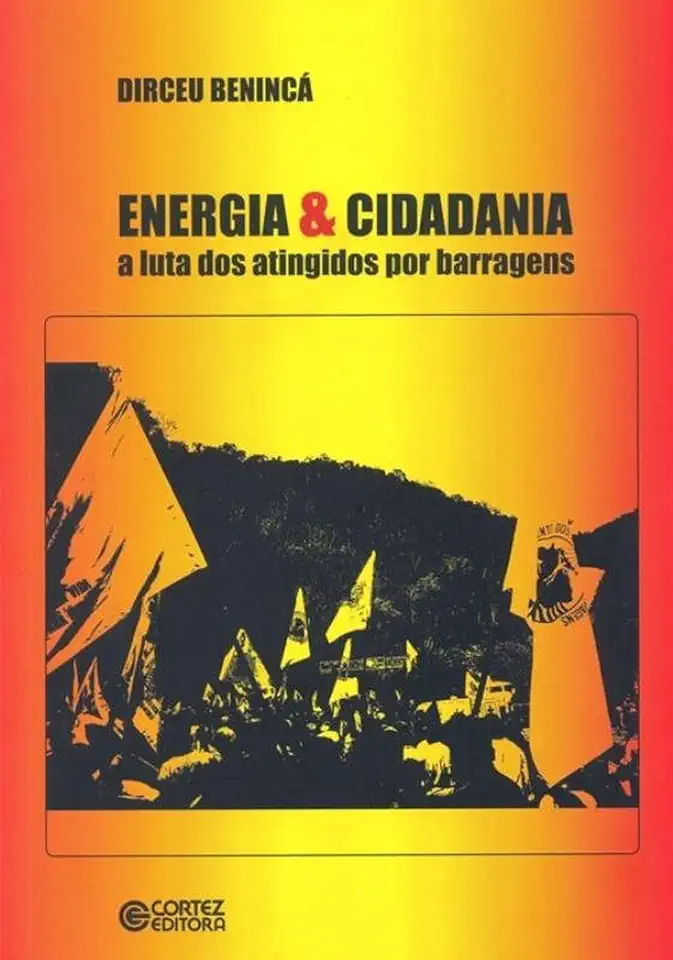
Energy and Citizenship - Dirceu Benincá
Energy and Citizenship: A Path to a Sustainable Future
In his groundbreaking book, "Energy and Citizenship: A Path to a Sustainable Future," renowned energy expert Dirceu Benincá presents a compelling vision for a world powered by clean, renewable energy sources and driven by active citizen participation. With a wealth of knowledge and experience in the field, Benincá offers a comprehensive analysis of the current energy landscape and charts a course towards a more sustainable and equitable future.
Understanding the Energy Challenge
Benincá begins by painting a vivid picture of the urgent need for energy transformation. He delves into the intricate relationship between energy consumption, economic growth, and environmental degradation, highlighting the unsustainable trajectory of our current energy systems. Through meticulous research and case studies, he demonstrates the profound impact of fossil fuel dependence on our planet's health, climate stability, and social justice.
Empowering Citizens as Energy Actors
At the heart of Benincá's vision lies the concept of energy citizenship. He argues that transitioning to a sustainable energy future requires a fundamental shift in the way we perceive and engage with energy. By empowering citizens to become active participants in energy production, consumption, and decision-making, we can unlock the potential for transformative change.
Benincá explores innovative models of community-based energy initiatives, renewable energy cooperatives, and participatory energy planning. He showcases inspiring examples from around the world where citizens have taken the lead in shaping their energy futures, achieving remarkable results in terms of energy efficiency, emissions reduction, and social empowerment.
Policy Frameworks for a Just Transition
Recognizing the crucial role of policy in enabling energy citizenship, Benincá provides a roadmap for policymakers to foster a conducive environment for sustainable energy transitions. He advocates for comprehensive policies that promote renewable energy development, energy efficiency measures, and equitable access to energy services.
Benincá emphasizes the importance of integrating energy policies with broader social, economic, and environmental objectives, ensuring a just and inclusive transition that leaves no one behind. He calls for participatory policy-making processes that actively engage citizens, communities, and marginalized groups in shaping energy policies that reflect their needs and aspirations.
Financing the Energy Transformation
Addressing the financial dimensions of energy transitions, Benincá explores innovative financing mechanisms and investment strategies that can mobilize the necessary capital for sustainable energy projects. He highlights the potential of green bonds, crowdfunding, and public-private partnerships to attract investments and ensure the financial viability of renewable energy initiatives.
Benincá also emphasizes the role of governments in providing financial incentives, subsidies, and risk-sharing mechanisms to encourage private sector participation in sustainable energy projects. He argues for a shift in investment priorities, redirecting financial flows from fossil fuels to renewable energy sources and energy efficiency measures.
Education and Capacity Building
Recognizing the critical importance of education and capacity building, Benincá stresses the need to equip citizens with the knowledge, skills, and tools to actively participate in energy decision-making. He calls for comprehensive energy education programs that foster energy literacy, critical thinking, and problem-solving skills.
Benincá also emphasizes the importance of capacity building for policymakers, energy professionals, and community leaders to ensure they have the expertise to design and implement effective energy policies and initiatives. He advocates for collaborative learning environments that bring together diverse stakeholders to share knowledge, experiences, and best practices.
Conclusion: A Call to Action
"Energy and Citizenship" concludes with a passionate call to action, urging readers to embrace the transformative power of energy citizenship and work collectively towards a sustainable energy future. Benincá emphasizes the urgency of the challenge and the immense opportunities that lie ahead. He invites readers to join the movement for energy citizenship, empowering themselves and their communities to shape a more just, sustainable, and resilient world.
With its compelling narrative, rigorous analysis, and practical recommendations, "Energy and Citizenship" is a must-read for anyone concerned about the future of our planet. It is a powerful reminder that the path to a sustainable energy future lies not only in technological advancements but also in the active engagement and empowerment of citizens. By embracing energy citizenship, we can collectively build a better world for present and future generations.
Enjoyed the summary? Discover all the details and take your reading to the next level — [click here to view the book on Amazon!]